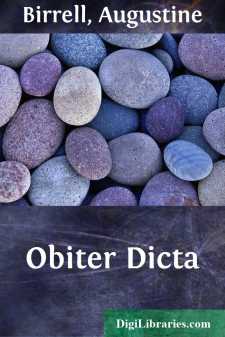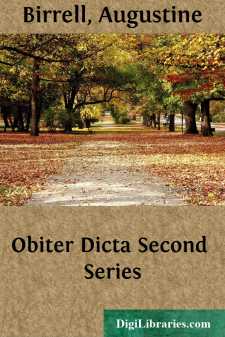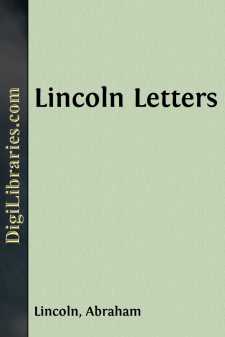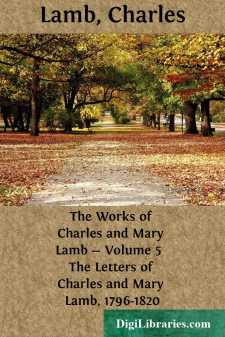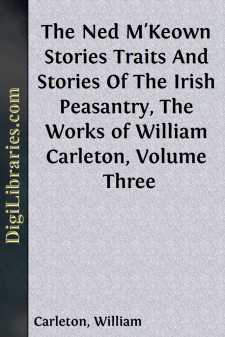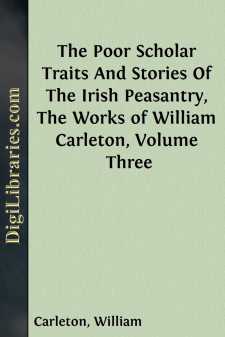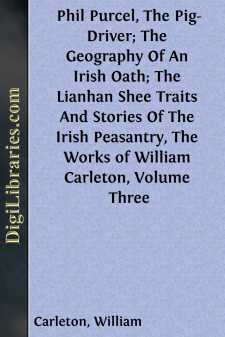Literary Collections
- American 84
- Ancient, Classical & Medieval 14
- Asian 1
- Australian & Oceanian 1
- Canadian 55
- Continental European 121
- English, Irish, Scottish, Welsh 179
- Essays 160
- General 24
- Letters 46
- Middle Eastern 1
Literary Collections Books
Sort by:
THE BEGINNINGS OF TRACTARIANISM During the first years of my residence at Oriel, tho proud of my college, I was not quite at home there. I was very much alone, and I used often to take my daily walk by myself. I recollect once meeting Dr. Copleston, then Provost, with one of the Fellows. He turned round, and with the kind courteousness which sat so well on him, made me a bow and said, Nunquam minus...
more...
CATO, THE CENSOR Born in Tusculum, Italy, in 234 b.c., died in 149; celebrated as statesman, general, and writer; questor under Scipio in 204; Consul in 195; served in Spain in 194; censor in 184; ambassador to Carthage in 150; one of the chief instigators of the third Punic war; among his writings are "De Re Rustica" and "Origines." OF WORK ON A ROMAN FARM When the owner of the farm...
more...
CARLYLE The accomplishments of our race have of late become so varied, that it is often no easy task to assign him whom we would judge to his proper station among men; and yet, until this has been done, the guns of our criticism cannot be accurately levelled, and as a consequence the greater part of our fire must remain futile. He, for example, who would essay to take account of Mr. Gladstone, must...
more...
I am sorry not to have been able to persuade my old friend, George Radford, who wrote the paper on ‘Falstaff’ in the former volume, to contribute anything to the second series of Obiter Dicta. In order to enjoy the pleasure of reading your own books over and over again, it is essential that they should be written either wholly or in part by somebody else. Critics will probably be found ready to...
more...
by:
Abraham Lincoln
Washington, Dec. 24th, 1848. My dear father:— Your letter of the 7th was received night before last. I very cheerfully send you the twenty dollars, which sum you say is necessary to save your land from sale. It is singular that you should have forgotten a judgment against you; and it is more singular that the plaintiff should have let you forget it so long, particularly as I suppose you have always...
more...
by:
Charles Lamb
This edition of the correspondence of Charles and Mary Lamb contains 618 letters, of which 45 are by Mary Lamb alone. It is the only edition to contain all Mary Lamb's letters and also a reference to, or abstract of, every letter of Charles Lamb's that cannot, for reasons of copyright, be included. Canon Ainger's last edition contains 467 letters and the Every-man's Library Edition...
more...
by:
Fanny Kemble
RECORDS OF LATER LIFE. Philadelphia, October 26th, 1834. Dearest Mrs. Jameson, However stoutly your incredulity may have held out hitherto against the various "authentic" reports of my marriage, I beg you will, upon receipt of this, immediately believe that I was married on the 7th of June last, and have now been a wife nearly five mortal months. You know that in leaving the stage I left...
more...
by:
William Carleton
INTRODUCTION. It will naturally be expected, upon a new issue of works which may be said to treat exclusively of a people who form such an important and interesting portion of the empire as the Irish peasantry do, that the author should endeavor to prepare the minds of his readers—especially those of the English and Scotch—for understanding more clearly their general character, habits of thought,...
more...
by:
William Carleton
THE POOR SCHOLAR. One day about the middle of November, in the year 18—, Dominick M'Evoy and his son Jemmy were digging potatoes on the side of a hard, barren hill, called Esker Dhu. The day was bitter and wintry, the men were thinly clad, and as the keen blast swept across the hill with considerable violence, the sleet-like rain which it bore along pelted into their garments with pitiless...
more...
by:
William Carleton
PHIL PURCEL, THE PIG-DRIVER. Phil Purcel was a singular character, for he was never married; but notwithstanding his singularity, no man ever possessed, for practical purposes, a more plentiful stock of duplicity. All his acquaintances knew that Phil was a knave of the first water, yet was he decidedly a general favorite. Now as we hate mystery ourselves, we shall reveal the secret of this remarkable...
more...




